The Ultimate Guide To A Vegan Diet For Athletes
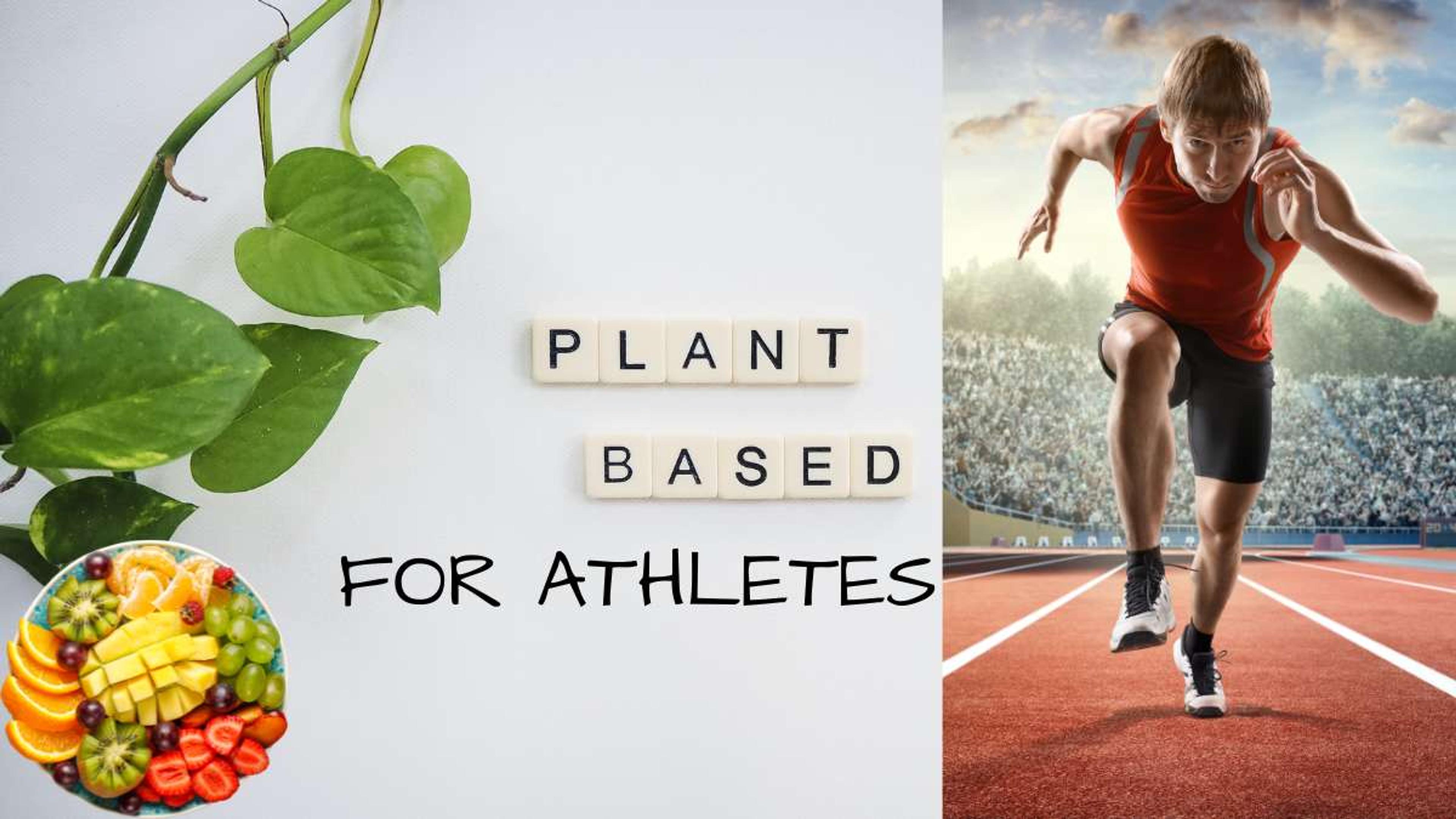
- Key Takeaways
- Benefits of a Vegan Diet for Athletes
- Key Nutrients for Vegan Athletes
- Meal Planning and Hydration for Vegan Athletes
- Sample Vegan Meal Plan Ideas for Athletes
- Tips for Success on a Vegan Athlete Diet
- Success Stories of Vegan Athletes
- Conclusion
- FAQs
Are you an athlete considering a vegan diet but worried about getting enough protein and other essential nutrients? Research shows that with careful planning, a plant-based diet can fuel athletic performance effectively as any other. This is especially true for vegetarian athletes who have found success in their athletic pursuits while following a plant-based diet.
This comprehensive guide will break down the benefits, necessary nutrients, and meal planning strategies for athletes adopting a vegan lifestyle. Keep reading to learn how going vegan might boost your game!
Key Takeaways
- Vegan athletes can experience increased energy and performance by consuming plant-based foods rich in clean carbohydrates, essential vitamins, and minerals.
- Switching to a vegan diet may lead to faster recovery times for athletes due to the anti-inflammatory compounds found in plant-based foods.
- A vegan diet can help reduce inflammation in athletes, improving pain levels and promoting faster recovery times.
- Vegan diets promote better digestion and nutrient absorption through high fiber content and lower saturated fat intake.
Benefits of a Vegan Diet for Athletes
A vegan diet can provide numerous benefits for athletes, including increased energy and performance, faster recovery time, reduced inflammation, and improved digestion and nutrient absorption.
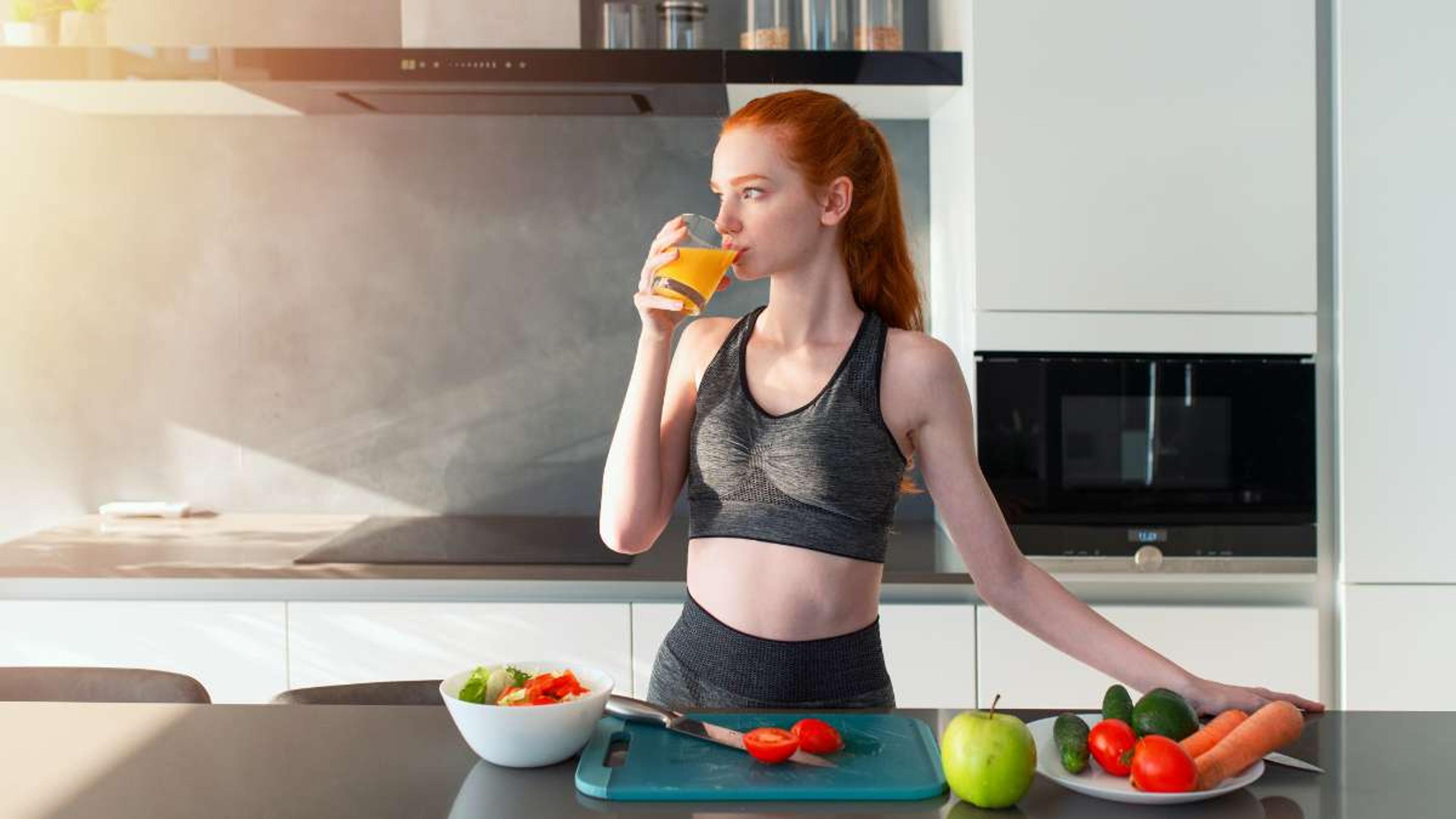
Increase Energy and Performance
Switching to a vegan diet can have surprising benefits for athletes, especially in the area of energy and performance. Rich plant-based foods like fruits, vegetables, whole grains, beans and legumes deliver high amounts of clean carbohydrates needed for energy production.
These foods also provide essential vitamins and minerals that aid metabolic processes linked with stamina development. Consuming such nutritionally rich meals enables athletes to thrive during intensive training sessions or competitions without feeling fatigued prematurely.
Studies show that vegetarian and vegan athletes exhibit two to three times higher endurance levels compared to their non-vegetarian counterparts.
Faster Recovery Time
Vegan athletes often experience faster recovery times post-workout. The rich anti-inflammatory compounds in plant-based foods can significantly reduce the time needed for full recovery.
A diet consisting of fruits, vegetables, whole grains, and legumes provides not only essential amino acids but also other key nutrients that aid this speedy healing process.
Consuming a well-planned vegan meal with much protein immediately after intense endurance training aids muscle glycogen restoration and repair. High-antioxidant plant foods like berries, almonds, flaxseeds promote tissue repair and immunity enhancement which is crucial for athlete's health and performance.
Reduces Inflammation
Athletes frequently face the challenge of inflammation, which can slow recovery and hinder performance. Moving to a vegan diet for athletes can prove to be beneficial in combating this issue. Plant-based foods are rich in anti-inflammatory compounds that naturally aid the body in dealing with inflammation more efficiently.
According to findings by Harvard Medical School, a vegan diet diminishes heart-damaging inflammation significantly. Also, a comprehensive meta-analysis has confirmed that such a diet decreases inflammation while improving heart health simultaneously.
Therefore, athletes can appreciate reduced pain levels and faster recovery times on their journey towards improved athletic performance when they embrace a well-rounded vegan meal plan, keeping meat consumption and high cholesterol at bay.
Better Digestion and Nutrient Absorption
A vegan diet can promote better digestion and nutrient absorption in athletes. Plant-based diets are typically high in fiber, which aids in digestion by promoting regular bowel movements and preventing constipation.
This can help athletes maintain optimal gut health and prevent digestive issues that could interfere with training or competition. Additionally, plant-based foods like flax are rich in various vitamins, minerals, and antioxidants that support overall health and improve nutrient absorption.
By consuming a diverse range of plant foods, athletes can ensure they are getting the essential nutrients their bodies need for optimal performance.
Plant-based diets also tend to be lower in saturated fats compared to diets that include animal products. This can further support digestion by reducing the risk of developing conditions like heart disease or gastrointestinal problems associated with high-fat diets.
Key Nutrients for Vegan Athletes
Plant-based protein sources, essential amino acids, iron and B12 supplements, and omega-3 fatty acids are crucial for vegan athletes. Discover how these nutrients can fuel your athletic performance and enhance your overall health.
Read more to find out!
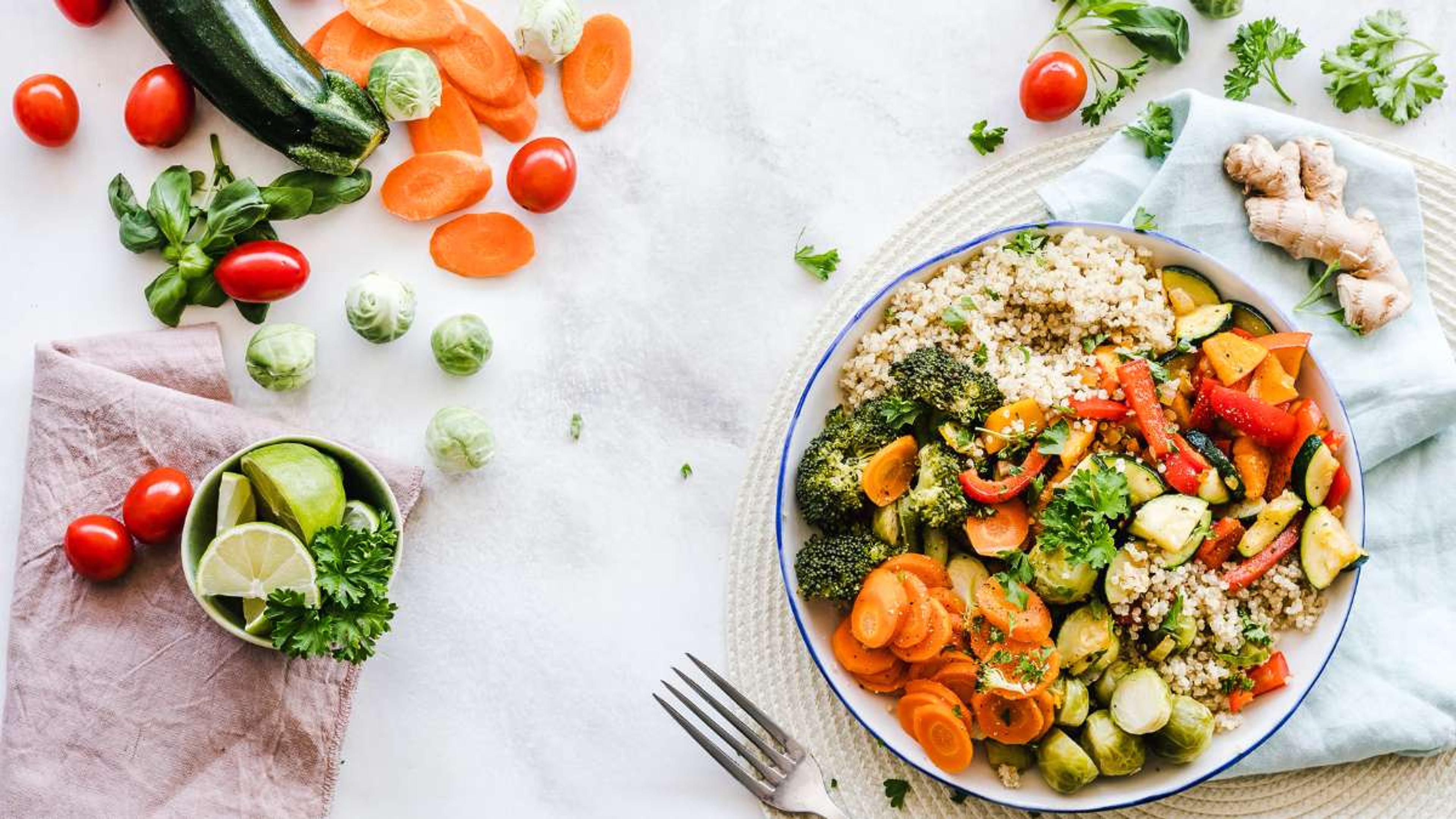
Plant-Based Protein Sources
Plant-based protein sources are a crucial component of a vegan athlete's diet. They provide the necessary amino acids for muscle repair and growth, as well as other important nutrients. Some excellent plant-based protein sources to include in your diet are:
- Legumes: Foods like lentils, chickpeas, and black beans are rich in protein and fiber. They can be used in a variety of dishes, such as salads, soups, and stews.
- Soy Products: Tofu, tempeh, and edamame are all great sources of plant-based protein. They can be grilled, sautéed, or used in stir-fries to add protein to your meals.
- Quinoa: This pseudocereal is not only high in protein but also contains all essential amino acids. It can be used as a base for salads or as a grain substitute in recipes.
- Nuts and Seeds: Almonds, walnuts, chia seeds, hemp seeds, and flaxseeds all contain protein and healthy fats. They make great additions to smoothies, oatmeal, or can be enjoyed as snacks.
- Whole Grains: Foods like brown rice, oats, whole wheat breads/pastas provide a good amount of protein along with other essential nutrients.
Essential Amino Acids
Essential amino acids are crucial for the muscle repair and growth that athletes require. Vegan diets can sometimes be lacking in certain essential amino acids like lysine, methionine, and leucine. However, by consuming a variety of plant protein sources throughout the day, vegan athletes can obtain all the necessary essential amino acids.
Plant-based foods rich in amino acids include soy products like tofu, tempeh, and edamame, as well as quinoa and legumes like lentils, chickpeas, and black beans. These foods not only provide protein but also contain all the essential amino acids that athletes need for optimal muscle repair and growth.
It's worth noting that nuts and seeds, such as almonds, walnuts, chia seeds, hemp seeds, and flaxseeds, are also excellent sources of both protein and healthy fats. These can be easily incorporated into your diet by adding them to smoothies, oatmeal, or enjoying them as it is.
Iron and B12 Supplements
Iron and B12 supplements are essential for vegan athletes to ensure they receive the necessary nutrients for optimal performance.
- Vitamin B12 is necessary for proper nerve function and the production of red blood cells. Since it is not naturally found in plant-based foods, supplementation is crucial for vegans to maintain healthy levels of this essential nutrient.
- Iron is vital for carrying oxygen throughout the body and preventing fatigue. While plant-based sources of iron exist, they may not be as readily absorbed by the body as compared to animal-based sources. Supplementing with iron can help vegan athletes meet their iron needs and prevent deficiencies.
- Most vegans obtain their B12 through fortified foods or supplements rather than relying solely on plant-based sources. This ensures that they consume enough B12 to avoid anemia and nervous system damage.
Iron rich vegan foods include dark leafy greens like spinach and kale, dried fruits such as apricots and raisins, seeds like pumpkin and sesame seeds, and legumes such as lentils and chickpeas. These foods can be incorporated into a vegan athlete's diet to help meet their iron requirements.
Plant-based foods that are packed with Vitamin B12 include nutritional yeast, fortified plant-based milk, and fortified breakfast cereals. These options provide a convenient and reliable source of B12 for vegan athletes. Other foods include fermented soy products like tempeh and miso. These can be great additions to a vegan athlete's diet not only for their B12 content but also for their protein and other beneficial nutrients.
In addition to incorporating these iron-rich and B12-packed foods into their diet, vegan athletes may also consider consuming fortified plant-based protein powders or bars. These products are often fortified with additional vitamins and minerals, including iron and B12, making them convenient options for athletes on the go.
It is also essential to pay attention to overall meal planning as a vegan athlete. Ensuring a well-balanced intake of carbohydrates, fats, and proteins is crucial for optimizing performance and recovery.
Carbohydrates are the primary fuel source for athletes, providing energy for workouts and replenishing glycogen stores. Vegan athletes can obtain carbohydrates from whole grains like quinoa and brown rice.
Omega-3 Fatty Acid
Vegan athletes may face a challenge in getting enough omega-3 fatty acids, as these essential fats are commonly found in fish and fish oils. Since these sources are not suitable for vegans, they need to explore alternative options.
It is recommended that vegan athletes consider supplementation or other plant-based sources of omega-3 fats to meet their daily needs of 1.1 to 1.6 grams. Pescatarian diets, which include seafood, might be a more practical choice for obtaining the specific omega-3 fats EPA and DHA.
Omega-3 fatty acids are richly found in plant-based foods such as flaxseeds, chia seeds, hemp seeds, and walnuts. These can be excellent sources of omega-3 fatty acids for vegan athletes. Incorporating these foods into daily meals or snacks can help meet the recommended intake.
In addition to plant-based sources, there are also algae-based omega-3 supplements available in the market such as nori & wakame. These supplements offer a vegan-friendly alternative to meet the recommended daily intake of omega-3 fatty acids for athletes.
Meal Planning and Hydration for Vegan Athletes
When planning meals, vegan athletes should focus on creating a balance by incorporating whole grains, fruits, and vegetables into their diet.

Creating Balanced Meals
A vegan athlete can create balanced meals by incorporating a variety of plant-based foods. Here are some key tips to keep in mind:
- Include whole grains: Opt for nutrient-dense options like quinoa, brown rice, and whole wheat bread to fuel your workouts and provide sustained energy.
- Add plenty of fruits and vegetables: These colorful foods are packed with vitamins, minerals, and antioxidants that support overall health and recovery.
- Choose plant-based proteins: Incorporate sources such as tofu, lentils, chickpeas, and edamame to meet your protein needs for muscle repair and growth.
- Don't forget healthy fats: Include sources like avocados, nuts, seeds, and olive oil to provide essential fatty acids and promote optimal brain function.
- Stay hydrated: Water is critical for maintaining proper hydration levels during exercise. Drink enough water throughout the day to support optimal performance.
- Consider portion sizes: Be mindful of your calorie intake and adjust portion sizes accordingly based on your individual needs and activity levels.
Incorporating Whole Grains, Fruits, and Vegetables
Include whole grains, fruits, and vegetables in your vegan athlete diet to provide essential nutrients and promote optimal performance.
- Whole grains like quinoa, brown rice, and oats provide complex carbohydrates for sustained energy during workouts.
- Fruits such as bananas, berries, and oranges offer natural sugars for a quick source of energy.
- Vegetables like broccoli, spinach, and bell peppers are rich in vitamins, minerals, and antioxidants that support overall health and recovery.
- Incorporating a variety of these plant foods ensures a well-rounded diet that meets the nutritional needs of vegan athletes.
Importance of Hydration
Staying hydrated is crucial for athletes, especially those following a vegan diet. Proper hydration has numerous benefits, including maintaining overall health and supporting optimal athletic performance.
In weight-dependent sports, adequate fluid intake is essential for managing weight. Dehydration can negatively impact performance by causing a loss of more than 2% of body mass through perspiration.
However, the good news is that many plant-based foods commonly consumed in a vegan diet contain high amounts of water, which helps with hydration during exercise and competition. So, ensuring proper hydration should be a top priority for all vegan athletes to optimize their physical performance and well-being.
Sample Vegan Meal Plan Ideas for Athletes
Fuel your body with nutrient-rich plant-based meals that will help enhance your performance. From pre-workout snacks to post-workout recovery meals, discover delicious and satisfying options for athletes on a vegan diet.
Read more to find out how you can optimize your nutrition and take your athletic abilities to the next level.
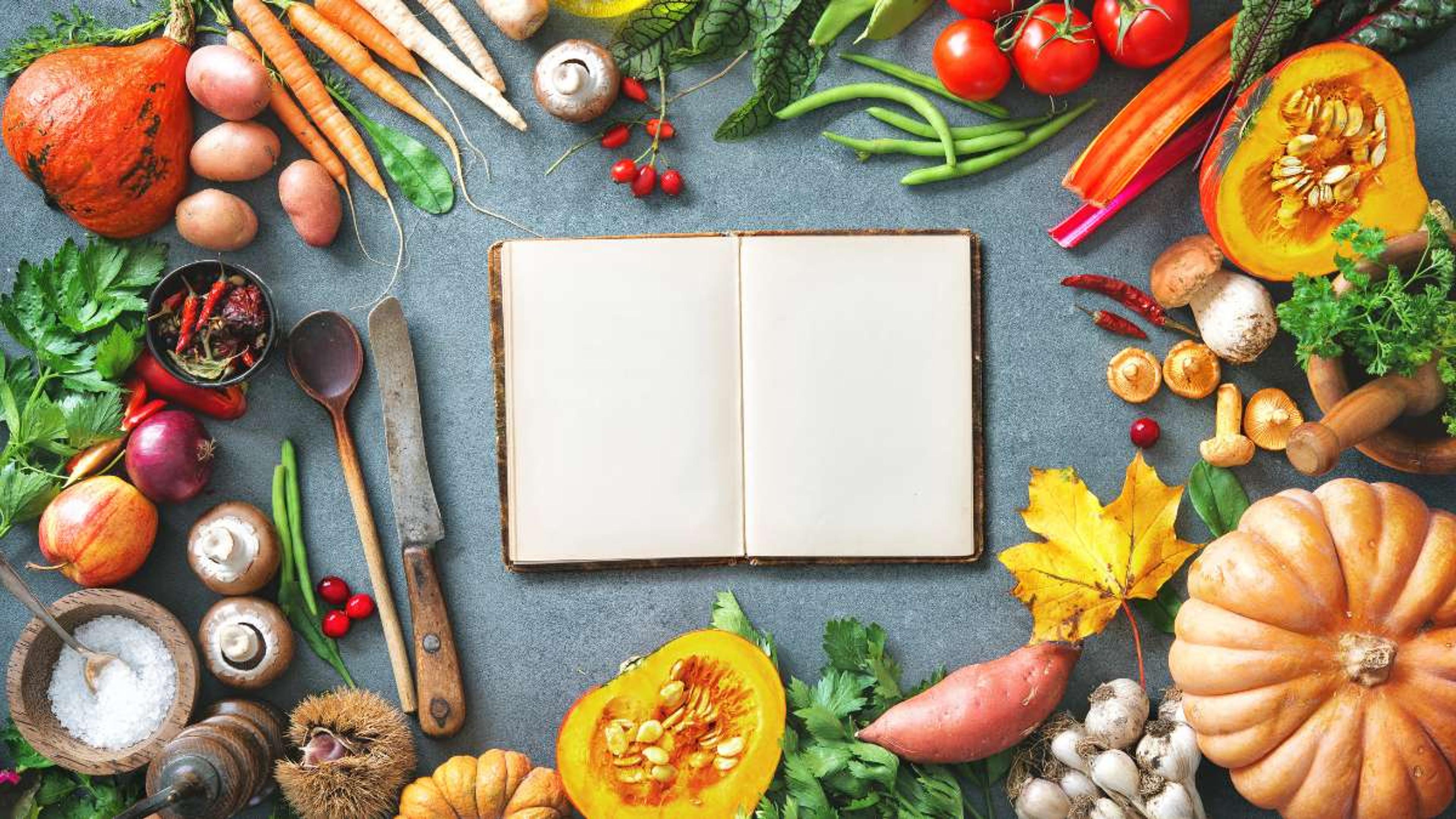
Pre-workout snacks
Dried fruit paired with a handful of almonds or walnuts can be an excellent option for vegan athletes as a pre-workout snack. This combination provides healthy carbohydrates, which are essential for fueling workouts and maintaining energy levels.
Dried fruit also contains natural sugars that provide immediate energy, while the almonds or walnuts offer protein and healthy fats to support muscle function and recovery. By including this nutritious snack before exercise, vegan athletes can ensure they have the necessary fuel to perform their best during training sessions or competitions.
Breakfast, lunch, and dinner options
For breakfast, you can enjoy a half cup of protein granola with almond milk and sliced fruit for a nutritious start to your day.
At lunchtime, consider trying a hearty quinoa salad packed with vegetables like cherry tomatoes, cucumber, and avocado. For dinner, you can savor the flavors of chickpea curry served with brown rice or whole wheat naan bread on the side.
These delicious and satisfying meals provide the necessary nutrients to fuel your athletic performance without compromising your vegan lifestyle.
Post-workout recovery meals
A well-planned vegan diet can play a crucial role in aiding post-workout recovery for athletes. Plant-based foods, rich in essential nutrients and antioxidants, help to repair muscles and reduce inflammation after intense physical activity.
Consuming a combination of carbohydrates and plant-based proteins within 30 minutes to an hour after exercising can optimize muscle recovery by replenishing glycogen stores and promoting protein synthesis.
By including sources such as tofu, lentils, chickpeas, quinoa, nuts, and seeds in their meals, vegan athletes can achieve the necessary nutrient intake to support their recovery process without relying on animal products.
Tips for Success on a Vegan Athlete Diet
To ensure success on a vegan athlete diet, it is important to only use supplements and fortified foods if necessary and seek guidance from a registered dietitian.
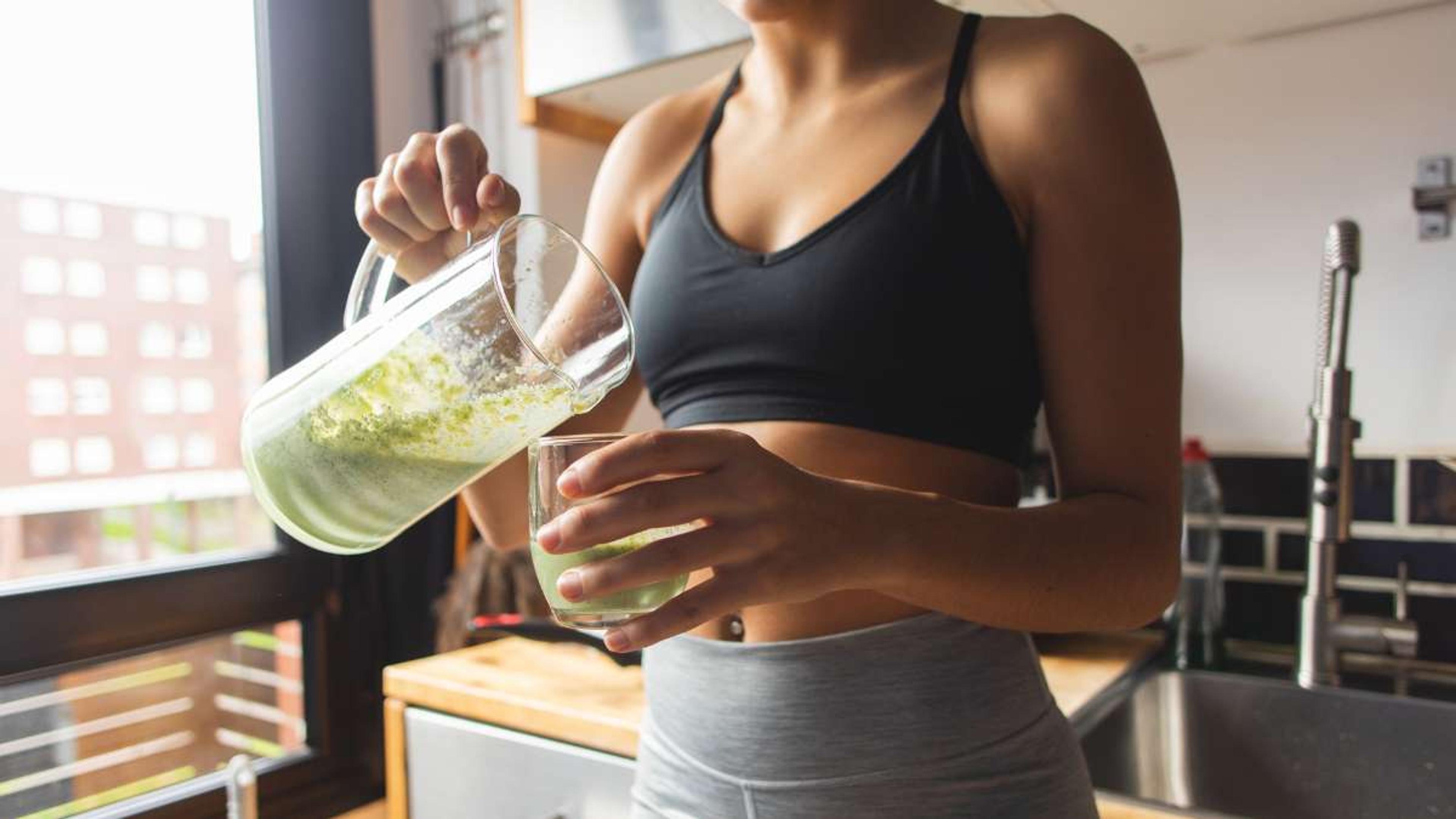
Use supplements and fortified foods only if necessary
Vegan athletes may need to use supplements and fortified foods if necessary to ensure they are meeting all their nutritional needs. This is especially important for nutrients like vitamin B-12, which is primarily found in animal products.
Vegan athletes should aim to consume vitamin B-12 fortified foods daily or take a vitamin B-12 supplement or multivitamin, as this nutrient plays a crucial role in energy production and the formation of red blood cells.
Additionally, other essential nutrients such as iron and omega-3 fatty acids can also be supplemented if needed. It's always best to consult with a registered dietitian who specializes in plant-based nutrition to determine if supplementation is necessary based on individual needs.
Consult a registered dietitian for guidance
For athletes following a vegan diet, it is highly recommended to consult a registered dietitian for guidance. While there is limited literature on managing vegan diets specifically for athletic purposes, a dietitian can provide the necessary knowledge and expertise to ensure that dietary needs are being met.
By working closely with a dietitian, vegan athletes can address any potential deficiencies and optimize their nutrition to enhance athletic performance. With their assistance, athletes can develop well-balanced meal plans, incorporate important nutrients such as protein and iron, and identify appropriate supplements if necessary.
A registered dietitian will help create an individualized plan tailored to the specific needs of each athlete, promoting health and success in their sport.
Success Stories of Vegan Athletes
Professional athletes who follow a vegan diet have achieved incredible feats in their respective sports, proving that plant-based nutrition can fuel impressive athletic performance.
Profiles of Professional Athletes
Professional athletes from a range of sports have embraced the vegan lifestyle and reaped the benefits. Here are some profiles of these inspiring vegan athletes:
- Timo Hildebrand: This former German football goalkeeper chose to go vegan in 2014. He credits his plant-based diet for his improved endurance and recovery, allowing him to maintain peak performance on the field.
- Venus Williams: The tennis superstar adopted a vegan diet after being diagnosed with an autoimmune disease. She has since found that her energy levels have increased, while inflammation has reduced, leading to better overall health and athletic success.
- Novak Djokovic: The world-renowned tennis player switched to a plant-based diet to address his health issues and improve his athletic performance. This change helped him achieve tremendous success, including winning multiple Grand Slam titles.
- Lewis Hamilton: As one of the most successful Formula 1 drivers, Hamilton follows a plant-based diet for both ethical and health reasons. He believes that this lifestyle choice has positively impacted his energy levels and ability to recover from intense races.
- Scott Jurek: An ultra-marathon runner known for breaking records, Jurek attributes his outstanding performance to his plant-based diet. He believes that consuming nutrient-dense whole foods helps him maintain stamina during long-distance runs.
- Alex Morgan: The U.S. women's national soccer team player credits her switch to a vegetarian diet for boosting her strength and endurance on the field. She now follows a primarily plant-based diet and continues to excel as one of the top players in women's soccer.
- Virat Kohli: The Indian cricket legend, Virat Kohli, is known for his disciplined approach to fitness and nutrition. In 2018, he decided to embrace a vegetarian diet to improve his athletic performance. Kohli believes that this dietary shift not only enhances his energy levels but also aids in quick recovery after intense matches. As one of the fittest athletes in the world, Kohli continues to inspire many by showcasing the potential of a vegetarian diet for athletes.
Conclusion
In conclusion, a vegan diet can provide numerous benefits for athletes. From increased energy and faster recovery time to reducing inflammation and improving digestion, adopting a plant-based diet can enhance athletic performance.
By ensuring proper nutrient intake through meal planning and supplementation when necessary, vegan athletes can thrive in their chosen sports while reaping the health benefits of a plant-based lifestyle.
FAQs
1. Can athletes meet their nutritional needs on a vegan diet?
Yes, athletes can meet their nutritional needs on a vegan diet by ensuring they consume a variety of plant-based foods that provide essential nutrients such as protein, iron, calcium, and omega-3 fatty acids.
2. How can athletes ensure they get enough protein on a vegan diet?
Athletes can get enough protein on a vegan diet by including sources such as legumes (beans, lentils), tofu, tempeh, seitan, quinoa, hemp seeds, chia seeds, and certain vegetables like broccoli and spinach.
3. What are the benefits of following a vegan diet for athletes?
Following a vegan diet can benefit athletes by providing them with an abundance of antioxidants from fruits and vegetables that support recovery and reduce inflammation. It also tends to be high in complex carbohydrates which are important for sustained energy during workouts or training sessions.
4. Are there any potential challenges or considerations for athletes following a vegan diet?
Some potential challenges for athletes following a vegan diet may include ensuring adequate intake of nutrients like vitamin B12 and iron that are primarily found in animal products. Athletes should work with a registered dietitian to create balanced meal plans to ensure all nutrient needs are met while supporting optimal performance.

